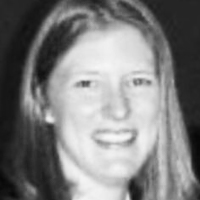Question
Instead of working individually with children who need help with literacy skills, would it be more cost-efficient to train teachers on what we know how to do?
Answer
It depends on how intensive that instruction is. Again there is evidence saying that paraprofessionals are not necessarily as effective, but that does not mean that we cannot train teachers in the classroom to do some things to help children, to talk with them about the most effective ways for us to teach in the classroom, how to help some of our children who have learning difficulties, language difficulties or reading difficulties. What are some of the strategies they can use to communicate with those children in the classroom so that they can be more effective in their teaching?
Angela Beckman Anthony, Ph.D., CCC-SLP is an adjunct professor for the Communication Disorders and Sciences Department at Eastern Illinois University. Her teaching, research, and clinical experience are focused on early language and literacy development and disorders.

